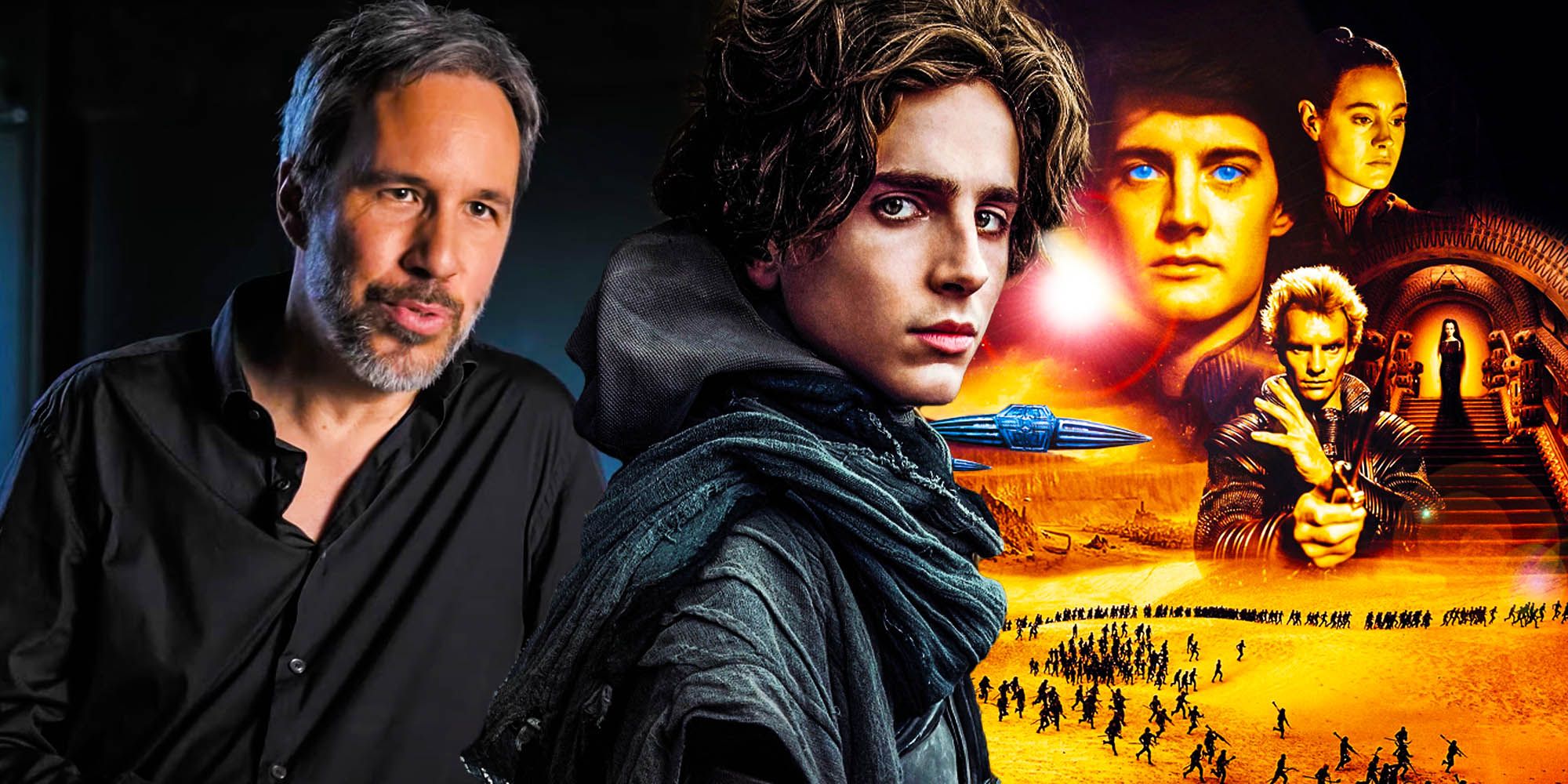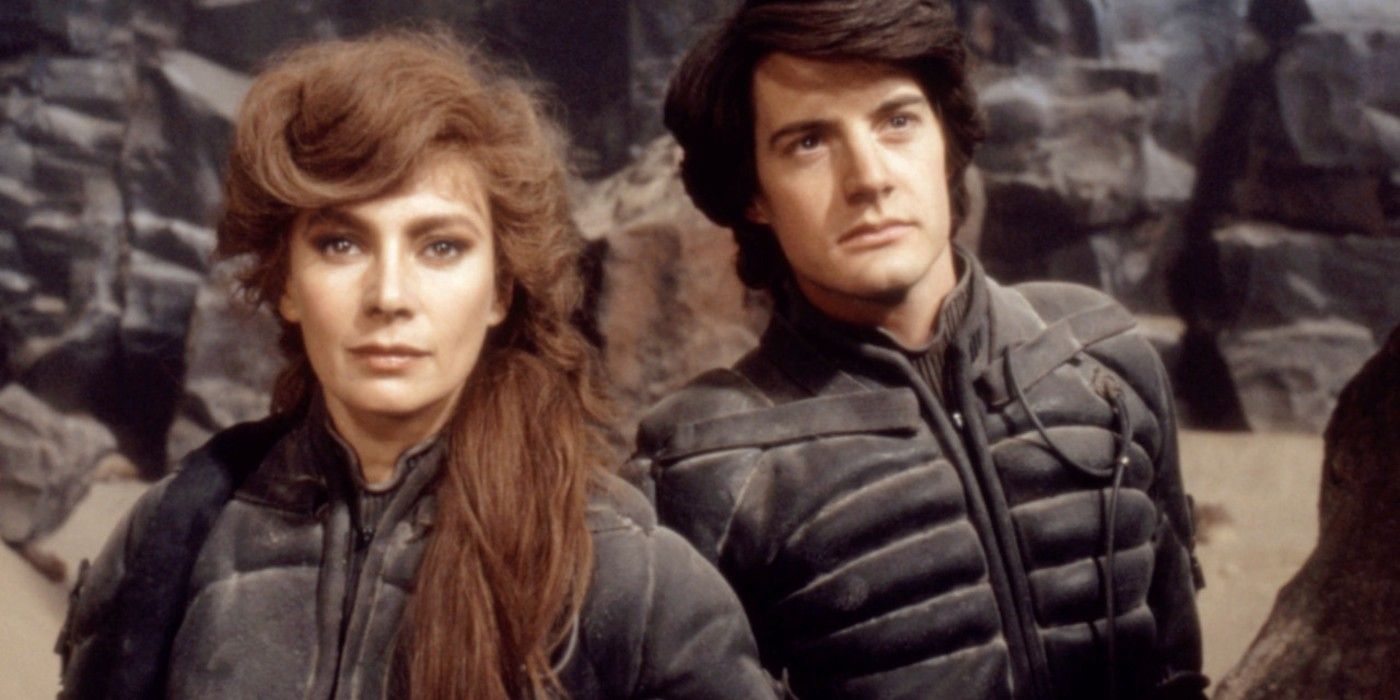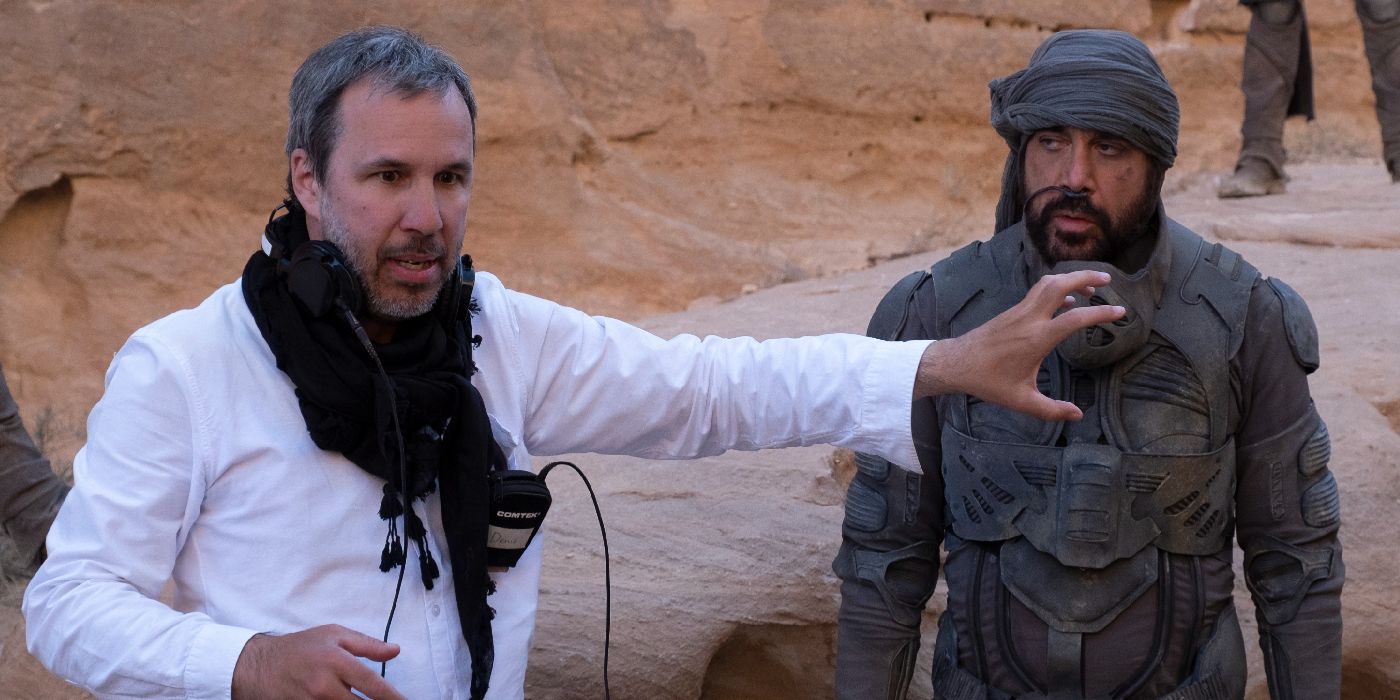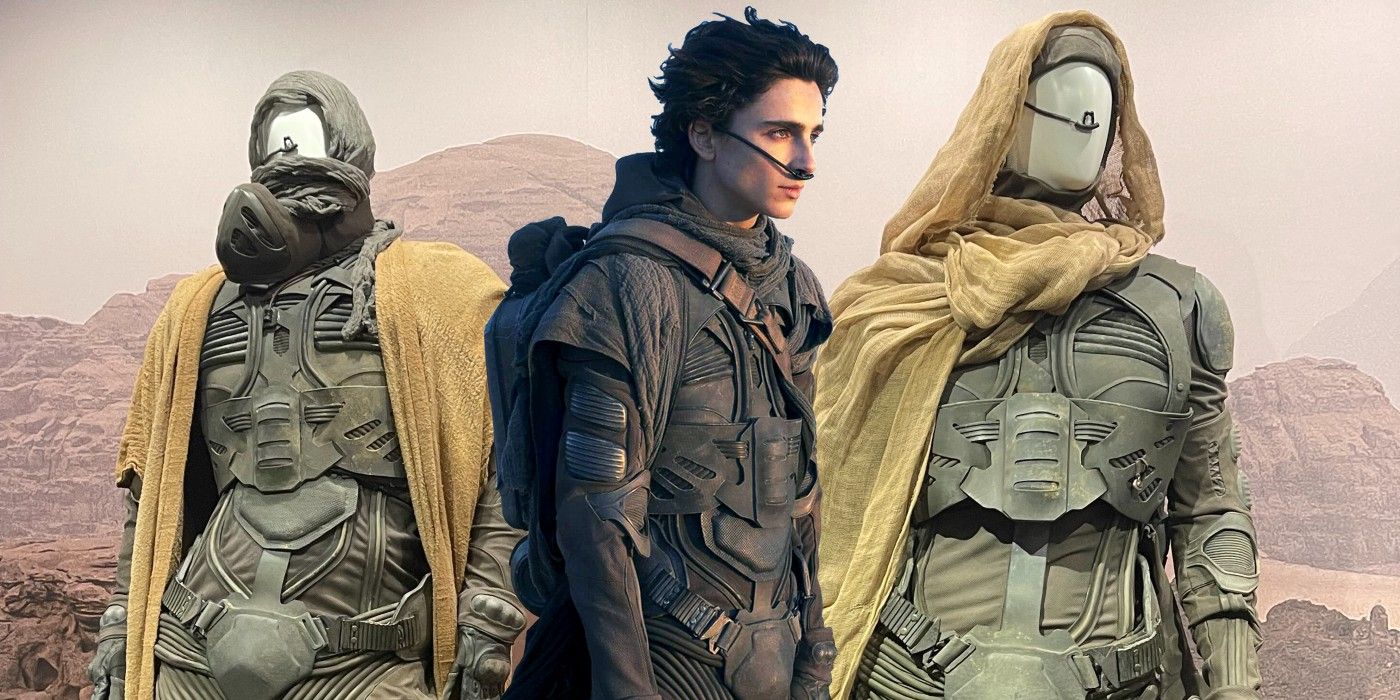
Denis Villeneuve's highly anticipated Dune arrives in theaters this weekend, and many viewers are wondering if they need to know anything about the movie before they see it. The film has a long history in terms of both source material and its extended production, which has added to the intrigue of the upcoming release. The sci-fi epic follows multiple storylines and characters, weaving in elements of religious and political ideals.
Along with all of these aspects of the story, Dune features an all-star cast of actors including Timothee Chalamet, Rebecca Ferguson, and Oscar Isaac in main roles. The supporting cast includes Zendaya, Josh, Brolin, and Jason Momoa amongst others. With such an incredible cast and director involved in the adaptation of Frank Herbert’s revered novel, it’s no wonder that audiences are excited about the film.
Herbert created a world complete with its own planets, economy, and unique vocabulary that will be introduced to a new generation through Villeneuve's interpretation. People may find themselves lost in all the available information about the 1967 story. While audiences don’t necessarily need to read the entire Dune book series or study the history leading the film to follow and enjoy it, there are a few key things that might be helpful to know. Here is the most relevant information that viewers should know before seeing Dune.

Dune has been a creative property greatly desired by film studios almost from the time of the book’s release in 1965. Filming rights were optioned by Apjac International in 1971 but production on the movie was delayed as the company searched for a director. In 1974, a French company purchased the film rights and attached director Alejandro Jodorowsky, who planned to make the story a 10-hour feature. Although Jodorowsky hoped to cast big stars like Orson Welles and Mick Jagger (who would later also miss a major franchise opportunity to be cast in an original Pirates of the Caribbean film) in his version of the film, the production proved to be too big of an undertaking and the rights once again were sold to Dino de Laurentis.
Laurentis commissioned Frank Herbert to write a script based on his novel in 1976 and even went so far as to hire Ridley Scott to direct. Scott planned to split the book across two films but eventually dropped out to direct Blade Runner. It was not until 1981 that Laurentis resumed his pursuit of adapting Dune, hiring director David Lynch. Still relatively new to feature films at the time, Lynch wrote the script for Dune without fully reading the book or having an interest in science fiction. While Herbert felt that Lynch’s version captured the spirit of his novel, the 1984 film was negatively reviewed by critics and bombed at the box office causing David Lynch to disown it.
Whereas the 2000 Syfy miniseries adaptation was well-received, Hollywood continued to struggle to bring Dune to the silver screen. Attempts were made in both 2008 and 2010, but it was not until Legendary Entertainment obtained the film rights in 2016 that the project got fully off ground again. Despite Hollywood’s past inability to adapt Herbert’s story, it paved the way for many of entertainment’s greatest sci-fi franchises including Star Wars and Star Trek.

The French Canadian director has taken his approach to the film very seriously, filming much of the movie in Liwa Oasis of the United Arab Emirates. A very hot and dry place, Villeneuve chose the location in order to capture the atmosphere of Arrakis as described in the book. He has also been very vocal about his desire for audiences to experience Dune in theaters and especially in IMAX, for which the movie was primarily filmed. Villeneuve has openly criticized Warner Brothers for the decision to release Dune on HBO Max concurrently with its theater release, although the COVID pandemic still makes many movie lovers hesitant to view it in a crowded auditorium.
The acclaimed director’s enthusiasm is undeniable as he was actively seeking the opportunity to direct Dune, being fascinated with sci-fi and already well known for his work in the genre. His two films preceding the adaptation of Herbert’s novel were both sci-fi films, Arrival and Blade Runner 2049. Along with each of those films being nominated for and receiving Academy Awards (Villeneuve received a nod for Best Director for his work on Arrival), they proved the director had the vision necessary to bring the sheer scope of Dune to the big screen.
Recognizing what Jodorowsky had known even in the 70s, Villeneuve made a deal for two Dune movies with Warner Brothers over which to split his adaptation. The director felt he could not adequately portray Herbert’s complicated and detailed work in a single film, saying that “it was too much for one movie.” The film will cover roughly the first half of the novel, prior to a two-year time jump that will be covered in a second film.

Dune is the epic story of the House Atreides, a family of royal status who leaves their home planet after the Emperor gives Duke Leto (Oscar Isaac) rule over the desert planet of Arrakis. The Duke is accompanied by his wife, Jessica (Rebecca Ferguson), and son, Paul (Timothee Chalamet, the soon-to-be Wonka actor), who is suspected by his mother to be the subject of a messianic prophecy. While each of the Atreides is cunning and well-trained in political maneuvering, their familial bonds are at risk of being torn apart by their rivals, the House Harkonnen (led by Baron Vladimir Harkonnen, played by Stellan Skarsgard).
The story takes place in a feudal system, in which land is given to the leaders of family houses by the emperor. The leaders are then able to rule the land and resources as long as they are able to create some sort of profit. Dune’s featured location of Arrakis is severely lacking in water, making living conditions difficult for all but the most affluent. Despite the lack of this vital element, the planet is rich in a valuable resource known as “spice” which must be hunted and farmed. Through the farming of spice, Duke Leto hopes to accrue wealth and resources to make the planet more sustainable for its population.
The trailer provides flashes of these pieces of the plot along with glimpses of secondary characters and other story points, including the infamous sandworms that live in the desert wilds of Arrakis. It also alludes to Paul’s latent ability to see future events, even now foreshadowing events to come in second the part of the story. There is plenty to dissect in the Dune trailer, from battle scenes and futuristic weapons to characters and their crisscrossing connections to one another.

While written in English and portraying characters that largely speak the English language, Dune has a distinct vocabulary used to describe both objects and people. Here’s a list of the most frequently used and their definitions in the context of the story.
Stillsuit - A close-fitting Arakeen garment that is designed to reclaim and recycle lost body moisture.
Crysknife - The sacred weapon used by the Fremen, made from the teeth of dead sandworms. Those who see the blade of a crysknife are not permitted to leave Arrakis by the Fremen.
Spice melange - The valuable, unique crop of the planet Arrakis and a regular part of the Fremen diet.
Spacing Guild - A branch of government that monitors and monopolizes transport and travel through space.
Fremen - Free people on the planet of Arrakis who live in the desert and seek to make their home more readily habitable.
Bene Gesserit - A school of mental and physical training in powers of keen observation for women, preparing them for positions of administrative and strategic assistance to those with royal and political status by using.
Kwisatz Haderach - The Bene Gesserit title for a male prophesied to possess their talents (suspected to be Paul), whose powers would bridge space and time.
Lisan Al-Gaib - Meaning “The Voice from the Outer World”, this is the title given to a prophet of Fremen legend.
Muad’dib - A kangaroo mouse that adapted in order to survive in the desert of Arrakis, bringing admiration from the Fremen.
Gom Jabbar - A poison-tipped needle the Bene Gesserit use to test strength of mind.
Sardaukar - The ruthless and highly trained soldiers of the Emperor.
Ornithopter - Any sort of aircraft capable of sustained flight using the beat of wings comparable to bird flight.
Sandcrawler - Machinery able to operate on Arrakis’ surface and used to collect spice melange.
from ScreenRant - Feed https://ift.tt/2Za8Kw7

0 Comments